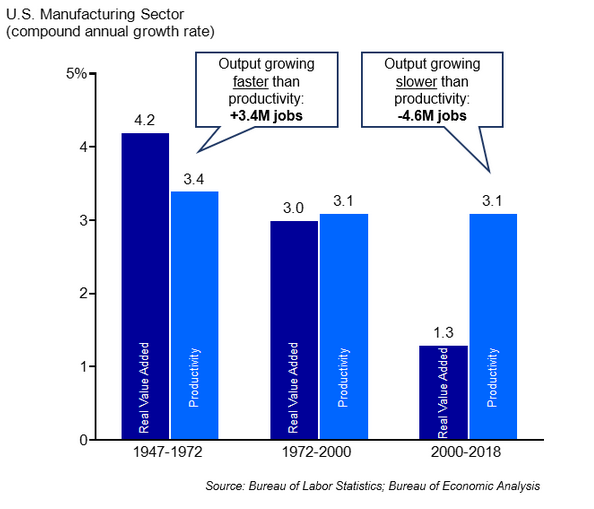Clinton '92 campaign had a lot of spending programs that were cut from his governance pretty quickly as the 1992 deficit numbers were much higher. The expectation was the investors would react favorably to lower budget deficits and invest more in the economy, but we've seen how that plays out in actuality.
Then after that, a major stimulus was blocked by the filibuster and failed to help the economic conditions.
In a vital double victory for President Clinton, the House approved a five-year budget blueprint and a more controversial $16.3-billion stimulus package to carry out his "vision for change in America."

www.latimes.com

www.nytimes.com
Backed into a corner by Senate Republicans and wavering members of his own party, President Clinton on Friday proposed cutting his economic stimulus program by nearly 25 percent in an effort to sat…

www.chicagotribune.com
There's some truth to this, but let's take a look at the proposals:
"The House budget resolution, which enjoyed strong Democratic backing, would
cut spending by $63 billion more than Clinton originally had sought and would achieve deficit reduction of $510 billion over the next five years."
"The
new Democratic strategy envisions spending reductions and higher taxes, mainly on the wealthy, that would allow bigger outlays for a variety of social programs and shrink the budget deficit as well."
"The stimulus package would raise spending this year and next by $16.3 billion for community development grants, a summer jobs program, small business loans and other projects designed to produce 219,000 jobs this year and more in the future."
"Most of the savings would result from
a “hard freeze” that would hold discretionary defense, foreign and domestic spending to current levels, with some programs being eliminated "
“this package promises to create at least 1 million jobs,
325,000 of which will be permanent, full-time jobs.”
[all from the LA Times Article]
"Clinton's new proposal retained $4 billion for extended unemployment compensation, which is favored by members of both parties. It also kept $1 billion for summer jobs for youth; $2.9 billion for highway construction; $300 million for childhood immunizations; $200 million for a program for children with AIDS; $845 million for waste-water treatment; $4 million for meat inspectors; and $
141 million for small business assistance."
"All of the other proposals Clinton made in his original package-everything from
community development block grants to flood-control and national park projects-would be cut 44 percent,"
[From the Chicago Trib]
Spending cuts and summer jobs programs, a paltry sum for small business assistance, new highways, and *unemployment* compensation--these are not policies that are going to do anything meaningful for the middle and working class. There is a tax increase on the upper brackets, but even that was pretty modest and mostly focused on addressing the budget deficit.
Gephardt didn't defend the program as much as he defended the President's right to have his agenda passed. The CBC offered another, more liberal proposal, and 87 Democrats voted for it.
Clinton was
always triangulating. He just got better at it later.
As the Overton window moved to the right, so did he.



